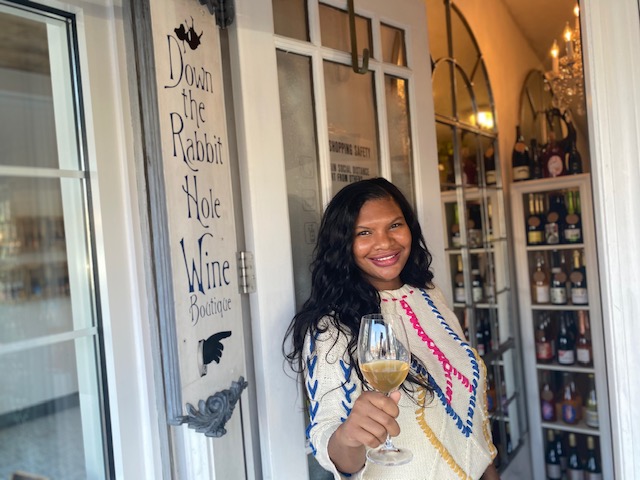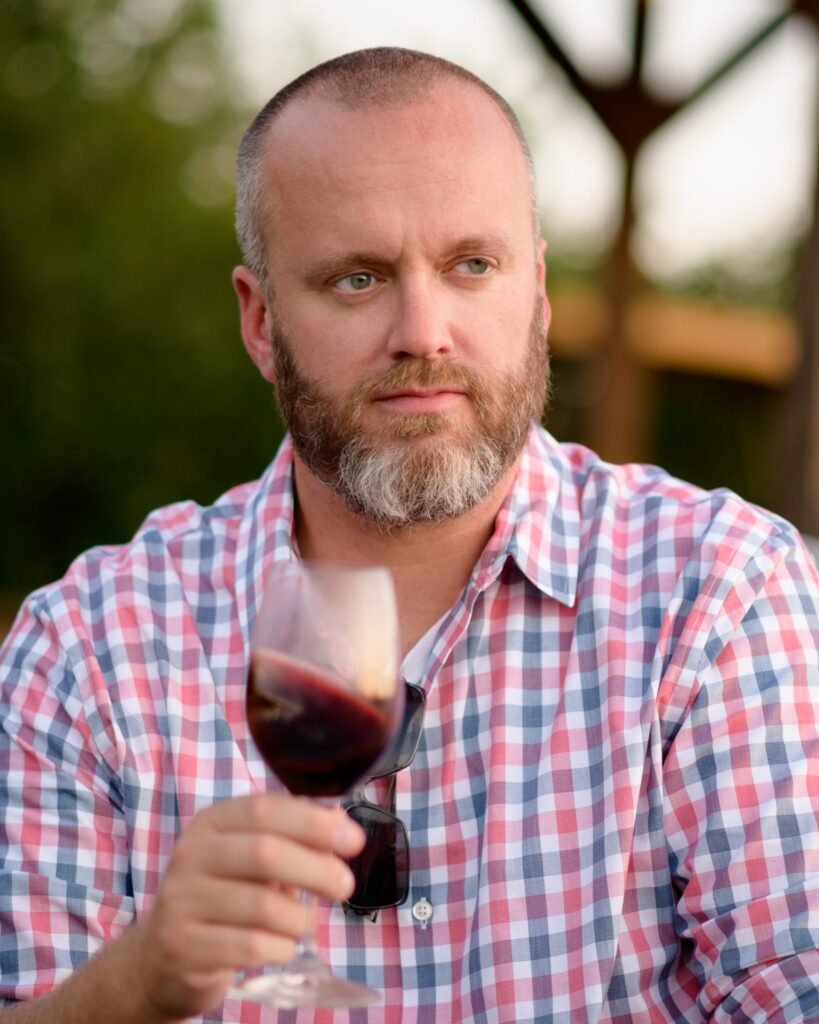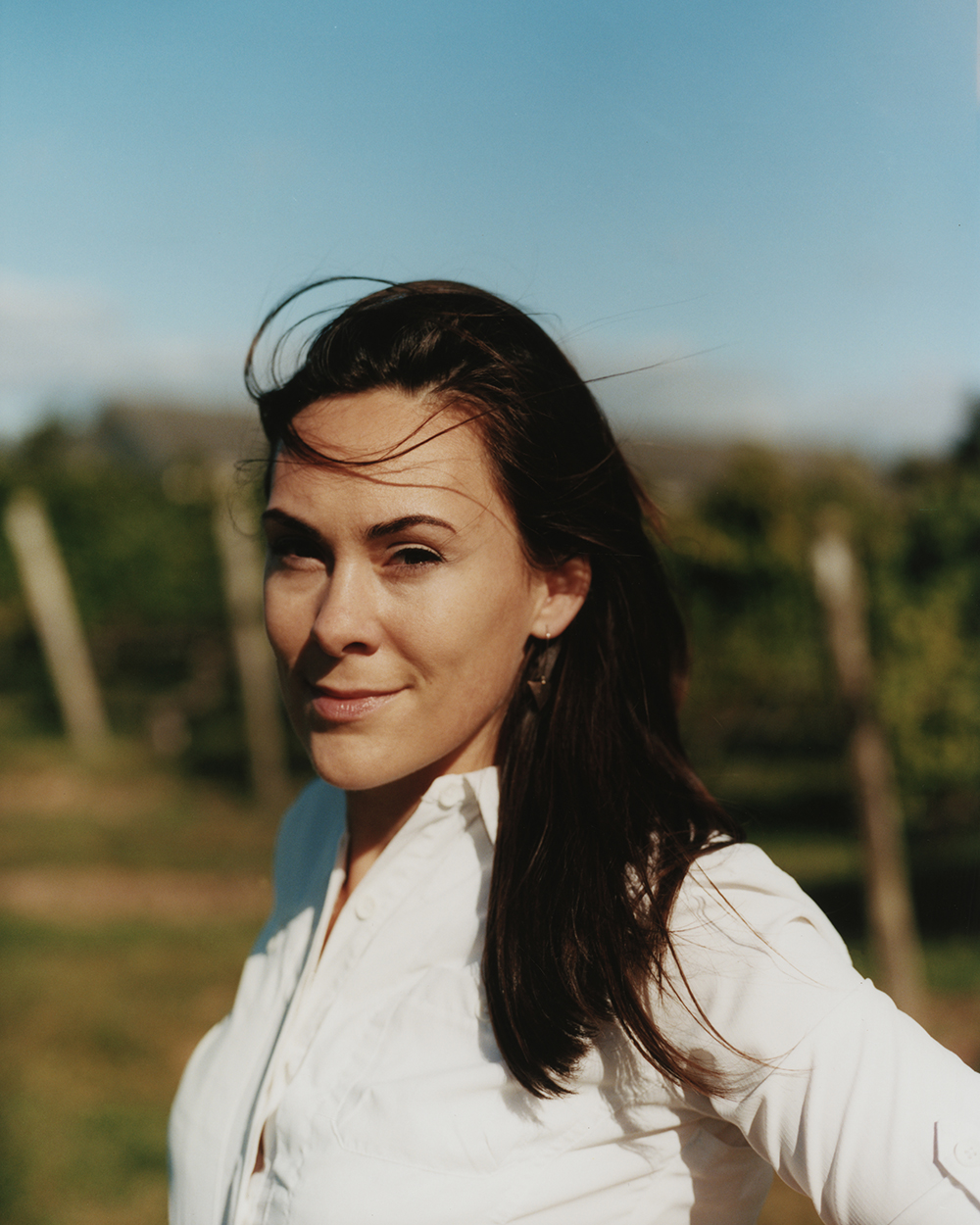The landscape of consumer goods has shifted seismically over the past two decades due to growing environmental awareness and desire for ethically produced products. The millennial generation, born between 1981 and 1996, lead the way. Millennials now make up the largest portion of the world’s population, presenting the greatest growth opportunity for the U.S. wine industry. In order to realize this growth, the wine business must inspire millennials and measure up to their generational values. In addition to an emphasis on climate change, this cohort is more health conscious, socially aware, and ethnically diverse than previous generations.

Down the Rabbit Hole Wine Boutique
According to the Silicon Valley Bank State of the Wine Industry Report 2021, “the social intersection between a brand and the consumer is increasingly connected to the decision to purchase particular products, including wine.” Jessica Green, Owner of Down the Rabbit Hole Wine Boutique, looks for wines that allow her to “support small, local farms that actually care about their communities.” A sense of community is also important for Lenn Thompson, Founder of the Cork Report, who likes to drink wines produced by people that he can “meet and get to know.” Lenn believes sustainable winegrowing “goes beyond how ‘green’ a vineyard or winery is” to include a grape grower’s ability to “earn a living, pay employees a living wage, and sustain his or her business over the long-term so it can be passed to future generations.” These sentiments are also reflected in a 2019 Campbell Ewald survey in which consumers reported that they had the greatest motivations to visit New York wineries who were “preserving the land for generations to come” and “whose winemaking allows them to continue generations of farming traditions.”

Cork Report
The goal of sustainability strategy is to achieve continuous improvement in environmental stewardship, social equity, and economic viability. The latter is the least romantic but arguably the most important when it comes to agriculture. Farming involves high production risk that can lead to low returns. If economic viability cannot be achieved, then there will be no farmer to implement positive change in the other two categories. In the words of Mark Twain, “continuous improvement is better than delayed perfection.”
Some sustainability measures can be cost saving in the short-term, such as energy efficient lighting upgrades or improved fuel efficiency. However, many sustainable vineyard practices do not operate on the same timeline. In the long term, sustainable winegrowing leads to healthier vineyard soils, resource conservation, and farmland preservation. In the short-term, replacing chemical means with physical labor can result in higher labor costs. Hand-weeding is more labor intensive than applying herbicide. The most immediate return for sustainable winegrowers comes from consumers who are willing to support these efforts by paying a premium or selecting eco-conscious wines over the alternative. It is of vital importance for wineries to find credible ways to communicate sustainability to consumers so that these achievements can be acknowledged as a value-add.
The majority of vineyards in New York State are family farm operations under 100 acres in size. Several of these vineyards apply sustainable, organic and biodynamic farming practices. Due to scale limitations, New York wineries often produce wine in small batches using traditional methods. These artisanal qualities and thoughtful production practices are highly desirable, but little of this information can be found on a wine label. According to a 2020 survey by Wine Intelligence, consumers seek convenient ways to find and identify sustainable wine “such as clear and simple visual cues or clearly identified sections in a store.” Organizations such as the California Sustainable Winegrowing Alliance and Long Island Sustainable Winegrowing have addressed this by developing third-party certifications with special labeling to help consumers make that connection. This labeling strategy is most effective when it is featured prominently on packaging. However, certification logos are often found on back labels and still require retailer advocacy to stand out. According to Jessica Green, the best way for shoppers to find eco-conscious wine is to express interest in “wines from sustainable farms” to their local wine merchant.
When people do make a personal connection with a sustainable producer, it can be an all-around win for the winery, consumer, and ecosystem. Wineries welcome the premiumization of sustainable wine and consumers are willing to support producers who prioritize their values. A national survey published by the Wine Market Council in 2018 shows that consumers are willing to pay a $1 to $3 premium for certified sustainable wines. This is further corroborated by Wine Intelligence, whose 2019 survey shows that consumers are willing to spend even more – up to a $5 premium – with an average extra spend of $3 per bottle. Millennials lead the way in this purchasing behavior, with 9 out of 10 willing to pay more, and according to Wine Intelligence “a sustainability claim on a product’s label increases a consumer’s intent to purchase.”
The trend towards sustainability is serendipitous for New York winegrowers, who have all of the raw material to appeal to the millennial wine market. Premium is no longer solely defined by 90+ point scores. This category now also includes small, conscientious farm wineries who care about their people, their planet and their wine. A gap still exists between what winegrowers know and what consumers want to know, but if winegrowers can close that gap through thoughtful consumer education, New York can be known as the go-to region for premium, sustainably produced wines.

